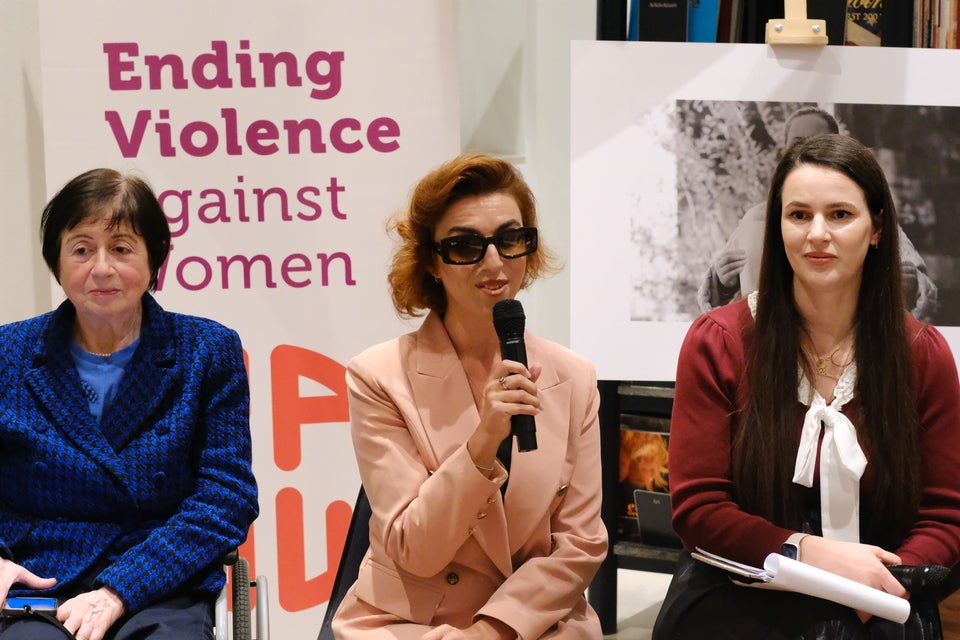Advocating for Women with Disabilities: The Urgent Call for Action
As part of the 16 Days of Activism campaign, the Albanian Disability Rights Foundation (ADRF) partnered with UN Women and the Government of Sweden to host a significant meeting. This gathering brought together activists, policymakers, and advocates to discuss the pressing challenges faced by women with disabilities and explore effective solutions.
Highlighting Daily Struggles
Blerta Drenofci, Executive Director of ADRF, initiated the discussion with a poignant speech focusing on the daily struggles endured by women and girls with disabilities.
“Women and girls with disabilities encounter heightened levels of disability-related violence, further exacerbated by a lack of awareness and inadequate support within existing systems. They face significant obstacles, including inaccessible services, insufficient victim support resources, a lack of information regarding their rights, dependence on their abusers, and minimal supportive services necessary for independent living,” Drenofci stated.
The Importance of Data
One of the key issues Drenofci highlighted was the scarcity of up-to-date, disaggregated data on individuals with disabilities. She stressed the need to enhance data collection and reporting mechanisms concerning violence against women, particularly focusing on those with disabilities.
Experiences of Disability Rights Advocates
Doliana Velia, a visually impaired Disability Rights Advocate and counseling psychologist with the Tirana Municipality’s Department of Social Services, shared poignant narratives about the challenges faced by numerous women with disabilities, especially in instances of abuse.
“I remember a mother with disabilities who expressed her struggle with the slogan ‘Report violence.’ She confided, ‘I can’t report this because I am being abused by my daughter, who also has intellectual disabilities.’ In her situation, reporting abuse wouldn’t be beneficial, as the actions are not intentionally harmful. This highlights the necessity for intervention from multiple institutions to provide the comprehensive support required,” Velia explained.
A Voice for the Voiceless
Ms. Bardhylka Kospiri, former Deputy Minister of Health and Social Protection, engaged attendees by sharing her insights as both an esteemed activist and a woman with a disability.
“Violence appears in numerous forms. Many women and girls with disabilities remain silent because they struggle to articulate the violence they experience. Often, they lack the assistance needed to voice their concerns, particularly those who are deaf or have speech impairments. Furthermore, individuals facing mental health issues often encounter stigma, leading their families to restrict their freedom due to psychological violence and discrimination,” Kospiri remarked.
Challenging the System
Monika Kocaqi, a gender equality expert and contributor to the UN Position Paper on Violence against Women with Disabilities, posed crucial questions during the meeting:
“When cases of violence arise, what processes are triggered upon filing a report? Do we have a form that is accessible and language-adapted to different disabilities? How prepared are police officers and local coordinators to effectively communicate with these populations? In cases of gender-based violence, information must be continuously updated at every stage.”
A Unified Call to Action
In light of these discussions, the United Nations System in Albania has underscored the urgent need for action across all levels: legislative, governmental, judicial, and among civil society organizations. Key recommendations include:
- Enhancing the enforcement of existing legislation to align with international standards.
- Ensuring accessibility of services and funding for survivor support organizations.
- Training service providers to raise disability awareness.
- Promoting public awareness and inclusion in decision-making processes.
This pivotal event was part of the UN Joint Programme aimed at ending violence against women and girls in Albania, co-implemented by UN Women, UNDP, and UNFPA, with support from the Government of Sweden.


